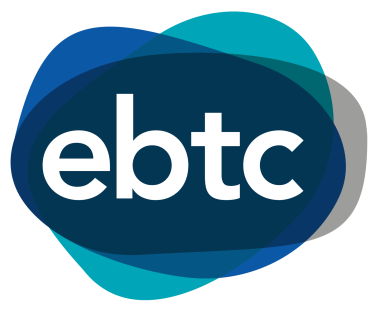EBTC Principles and Code of Conduct
Principles of EBT
Evidence-Based Toxicology is
1. Collaborative: Come together to accomplish impactful high-quality work across the Collaboration
2. Transparent: Promotes complete documentation of research, in a way that allows the reasons for undertaking it to be understood, study methods to be replicated, and data from research to be reused.
3. Inclusive: Is inclusive, standing against discrimination in all its forms and ensuring that both those engaged in and affected by toxicological research are represented in how it is conducted.
4. Innovative: Is reflective and innovative, challenging current toxicological practices and encouraging improvement in methods for generating and analyzing toxicological evidence.
5. Supportive: Provides effective mentorship, training, and development of toxicologists at all career stages.
6. Advocating: Promotes the consistent use of evidence-based methods for aggregating, evaluating and synthesizing research when using toxicological evidence in decision-making.
7. Many-sided: Is actively engaged in all branches of research and decision-making, acknowledging, and building upon the principles and achievements of evidence-based methods in medicine, social science, and others.
8. Relevant: Ensures that the questions studied are relevant for public health, avoid unnecessary duplication, are based on real concerns of stakeholders and that the answers are provided in a fit-for-purpose and timely manner.
Code of Conduct
EBTC asks its members to conduct themselves in a manner that preserves the transparency, inclusiveness, and integrity of the EBTC, such that everyone feels welcome and encouraged to be an active contributor to the development and use of evidence-based methods in toxicology and environmental health research. EBTC’s code-of-conduct describes what all EBTC members should expect from each other, and the measures EBTC will take if a member feels their expectations are not being met.
We have three key requirements of members:
- They represent themselves and the views they express are their own (transparency)
- They at all times contribute to an atmosphere of inclusivity (inclusiveness)
- They adhere to the highest standards of research integrity (integrity)
Transparency: In their interactions with the collaboration, EBTC asks its members to represent themselves, not their employers, other affiliated organizations, or associates. We expect a diverse membership to have a wide range of interests, and we view this diversity as a strength of the Collaboration. We do, however, ask members to be transparent about their interests. This is so we can preserve EBTC’s independence and the integrity of our decision-making in regard to the Collaboration’s overall mission and goals.
Inclusiveness: A key to successful collaboration is to respect your collaborators. As EBTC welcomes anyone as a member, members should welcome each other at all levels of interaction, to create an atmosphere that invites members to speak their mind and share their thoughts, ideas, experience, and knowledge. We expect members to behave in a sensitive and sympathetic manner towards one another, understanding that what one considers as normal behavior may be perceived as offensive by others. Inappropriate, discriminatory, or exclusionary behavior will not be tolerated.
Research Integrity: Collaboration on research is central to EBTC achieving its mission and goals. Good research practices are based on fundamental principles of research integrity. They guide researchers in their work as well as in their engagement with the practical, ethical and intellectual challenges inherent in research. Adapted from The European Code of Conduct for Research Integrity of the ALL European Academies (ALLEA), these principles are:
- Reliability in ensuring the quality of research, reflected in the design, the methodology, the analysis, and the use of resources.
- Honesty in developing, undertaking, reviewing, reporting, and communicating research in a transparent, fair, full and unbiased way.
- Respect for colleagues, research participants, society, ecosystems, cultural heritage and the environment.
- Accountability for the research from idea to publication, for its management and organization, for training, supervision, and mentoring, and for its wider impacts.
Conflict resolution: EBTC’s conflict resolution guide addresses potential violations of the EBTC code-of-conduct as well as problems, misunderstandings, and frustrations that may arise among EBTC members. It is EBTC’s intent to be responsive to its members and their concerns. EBTC takes all complaints seriously and operates a two-stage conflict resolution process. The first stage is to attempt to achieve amicable reconciliation via an informal process mediated by EBTC staff and the Director. If this is not successful, the complaint is elevated to a formal process involving the EBTC Board of Directors. More details are available in the Member’s Pack, that you will be sent after joining.
Evidence-Based Toxicology Collaboration at
Johns Hopkins Bloomberg School of Public Health
615 N. Wolfe Street, Baltimore, MD 21205
Website content issued under a CC-BY license
We need your consent to load the translations
We use a third-party service to translate the website content that may collect data about your activity. Please review the details in the privacy policy and accept the service to view the translations.
